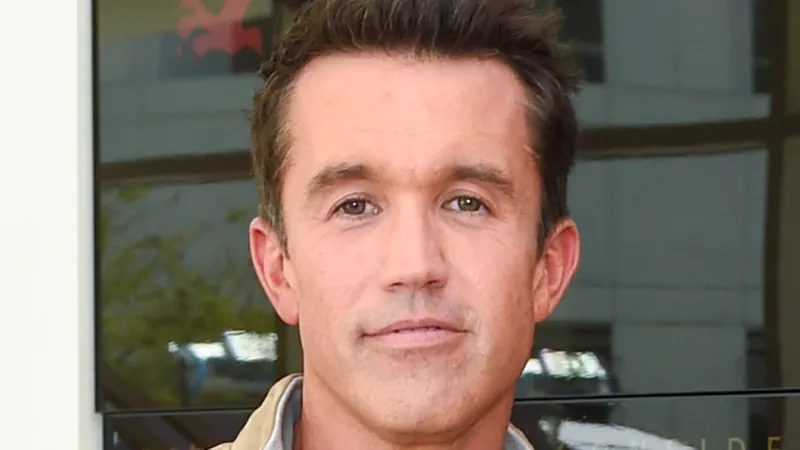
The Greenland Gamble: Trump Jr.'s Surprising Visit and the Future of Arctic Diplomacy
2025-01-16
Author: Jacques
Overview
Last week, Donald Trump Jr. made headlines with a visit to Greenland aboard 'Trump Force One,' accompanied by key advisors and right-wing activist Charlie Kirk. This wasn't just a leisure trip; although he described it as a 'very long personal day trip' aimed at exploring the stunning vistas of this Arctic island, many believe it has deeper political roots. In Nuuk, Greenland's capital, a town of about 20,000 residents just south of the Arctic Circle, he praised the island's breathtaking scenery and rich cultural history, particularly the traditional hunting practices of early Greenlandic inhabitants.
Controversial Agenda
However, beneath the glossy veneer of his visit lies a controversial agenda. Various media outlets, including Politico and the Washington Post, have suggested that his reception might have been staged. Reports indicate that local attendees wearing MAGA hats were incentivized to join, raising questions about the authenticity of the support showcased by the Trump team in their polished campaign-style video released after the event.
A Resurgence of Interest in Greenland
Trump Jr.'s excursion cannot be divorced from his father's previous ambition to acquire the island—a notion first floated in 2019 when Donald Trump, propelled by information from Greg Barnes, an Australian geologist with mining interests in Greenland, expressed interest in purchasing the territory from Denmark. The response from Denmark at the time was overwhelmingly dismissive, with Prime Minister Mette Frederiksen calling the proposal absurd, leading to diplomatic rifts and a canceled state visit to Denmark.
Fast forward to now, and the idea is undergoing a renaissance. Following Trump's re-election, a faction of the Republican party has adopted a somewhat retro expansionist viewpoint reminiscent of 19th-century 'Manifest Destiny,' now termed 'MAGA Manifest Destiny.' Notably, this week House Republicans introduced the 'Make Greenland Great Again Act,' allowing for officially sanctioned negotiations with Denmark for the purchase of the island. Even some unlikely voices, such as Pennsylvania Senator John Fetterman, have shown openness to the concept.
Geopolitical and Economic Interests
Greenland, with its vast mineral wealth and strategic location—now increasingly important due to climate change and geopolitical tensions—is desired not only for its natural beauty but for what it can offer in terms of resources. Investors, including Silicon Valley moguls, view it as a potential libertarian haven. Joe Lonsdale, co-founder of Palantir Technologies, even indicated that Greenland's resources could significantly benefit the U.S., echoing sentiments from an era when expansion was seen as a national growth opportunity.
Military Significance
The U.S. military has long viewed Greenland as essential to its Arctic strategy, mainly due to its proximity to rising tensions with Russia and China. Despite warnings about the growing presence of these powers in the region, recent U.S. diplomatic efforts have shifted toward collaboration rather than outright acquisition. The U.S. has maintained a significant military presence on the island, especially at the Pituffik Space Base, which is critical for North American security.
Sovereignty and Resistance
However, the notion of outright acquisition or even increased control is vehemently rejected by both Greenland and Denmark. Prime Minister Mute Egede has firmly stated that 'Greenland's independence is Greenland's business,' and that selling the island is simply out of the question. Expert analyses highlight the complexities surrounding any deal, emphasizing that under international law, colonial territories cannot be purchased.
Local Perspectives
While there is indeed a desire among some Greenlanders for a stronger relationship with the U.S., it is largely driven by frustrations with the Danish government and aspirations for greater autonomy, rather than a willingness to fall under another colonial power. Residents express a need for effective governance and support rather than a shift in control.
Historical Context and Ethical Considerations
Trump's legacy in Greenland extends beyond mere interest in land acquisition; historical accounts reveal lingering resentments stemming from past U.S. military activities that left a poor environmental legacy on the island. Furthermore, the prospect of Greenland as a future strategic player in the race for Arctic resources raises important questions about ethical governance, indigenous rights, and the implications of outside interference.
Future Outlook
As more direct flights from the U.S. to Greenland are set to launch, there is a growing recognition of the island's potential—not just as a military asset, but also as a burgeoning economic and political player in international relations. The true challenge ahead lies in balancing interests with respect for Greenlandic sovereignty and the pursuit of collaborative development opportunities that benefit all parties involved.
Navigating Complexities
If the ambitions of Trump Jr. and his allies are to gain traction, it will require navigating a complex landscape of historical grievances, modern-day aspirations, and a watchful eye from indigenous populations who are determined to chart their own course on the global stage.









 Brasil (PT)
Brasil (PT)
 Canada (EN)
Canada (EN)
 Chile (ES)
Chile (ES)
 Česko (CS)
Česko (CS)
 대한민국 (KO)
대한민국 (KO)
 España (ES)
España (ES)
 France (FR)
France (FR)
 Hong Kong (EN)
Hong Kong (EN)
 Italia (IT)
Italia (IT)
 日本 (JA)
日本 (JA)
 Magyarország (HU)
Magyarország (HU)
 Norge (NO)
Norge (NO)
 Polska (PL)
Polska (PL)
 Schweiz (DE)
Schweiz (DE)
 Singapore (EN)
Singapore (EN)
 Sverige (SV)
Sverige (SV)
 Suomi (FI)
Suomi (FI)
 Türkiye (TR)
Türkiye (TR)
 الإمارات العربية المتحدة (AR)
الإمارات العربية المتحدة (AR)